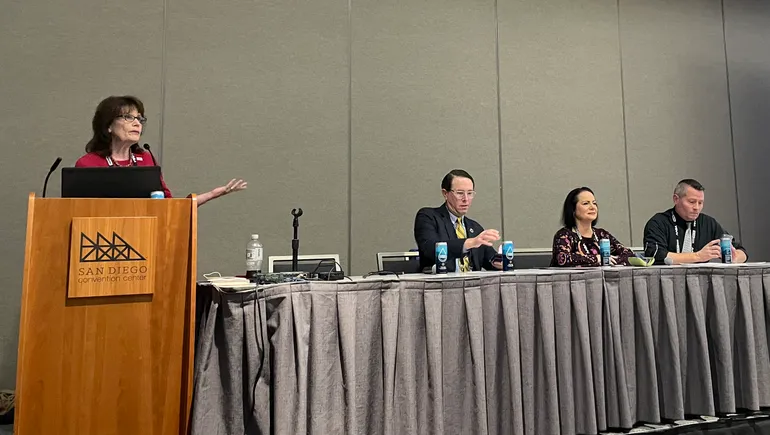Reflecting on the tenets that shape our educational practices is fundamental for …
Key Information for Superintendents on Artificial Intelligence
Carlos Changemaker

In the realm of artificial intelligence, it’s encouraging that most superintendents are well-versed in its concepts. Susan Enfield, the former superintendent of Washoe County Public Schools in Nevada, highlighted this awareness during the National Conference on Education by AASA, where attendees enthusiastically shared their AI initiatives.
Despite this broad familiarity, superintendents and school communities must bridge the gap in technical understanding. Ann McMullan from the Consortium for School Networking stresses the importance of presenting AI materials in accessible language. CoSN offers various AI resources to equip superintendents with the necessary knowledge, promoting clarity in integrating this technology into education.
Educators are keen on balancing AI’s advantages with its limitations, a concern Matthew Friedman from Quakertown Community School District emphasizes. Glenn Robbins from Brigantine Public Schools reassures that educators won’t be entirely replaced by AI, but adaptation to technology remains pivotal in the evolving job landscape students will encounter.
The proper application of AI, particularly generative AI, raises crucial questions. Issues of accuracy and biases underscore the need for critical thinking skills. Robbins underscores the necessity of verifying information derived from generative AI, emphasizing the importance of discernment in utilizing technology.
The ethical implications of utilizing generative AI pose challenges reminiscent of historical academic integrity issues. Educators must engage personally with students to prevent misuse of AI tools, fostering a culture of responsible learning. Addressing these concerns requires a collaborative effort from district leaders and educators alike to promote ethical and effective AI usage.
To cultivate a responsible AI culture, educators must confront fears associated with technology and encourage experimentation. Robbins advocates for teachers’ autonomy to innovate and learn. Building internal expertise and involving the community in educational initiatives are essential steps toward creating a cohesive AI framework in schools. Collaboration and shared knowledge among superintendents offer a sustainable approach to navigating the complexities of AI integration in education.



